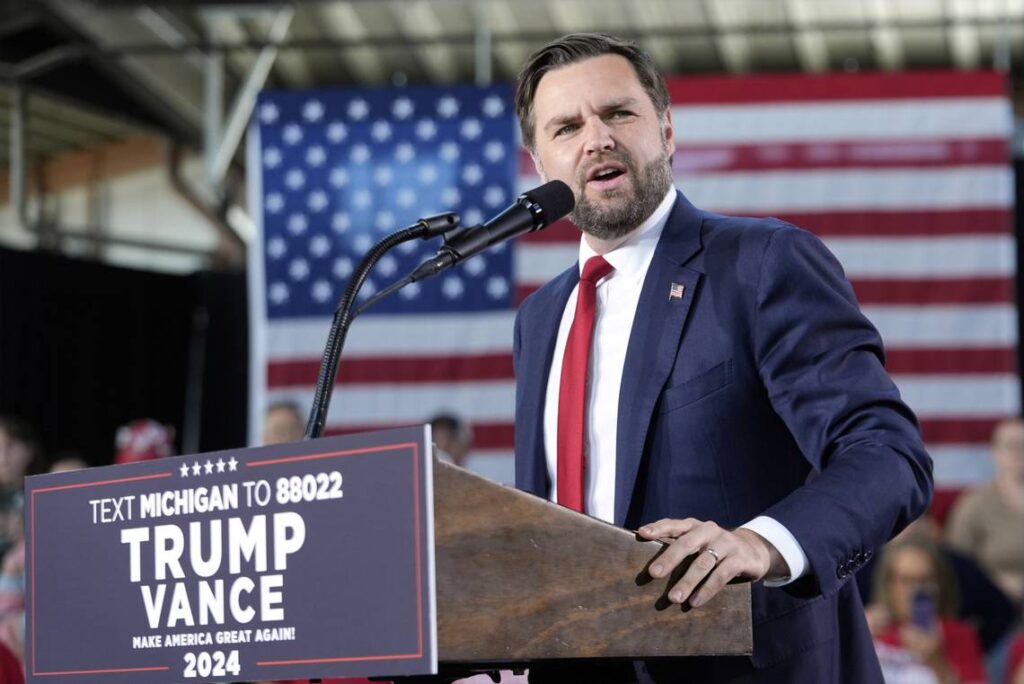JD Vance, a politically controversial figure, has faced significant criticism for his use of storytelling in politics, particularly in his partnership with Donald Trump. The concept of “storytime” sessions, as Vance refers to them, is aimed not at children but at adults, promoting narratives that are often factually ungrounded. These tales, instead of serving to illuminate real issues, propagate falsehoods, especially concerning the legal immigrant population in Springfield, Ohio. The consequences of these fabricated narratives have been severe, leading to numerous bomb threats and heightened tensions fueled by misinformation, showcasing how politicized storytelling creates more problems than it solves. Critics argue that Vance and Trump’s approach is detrimental to the community, creating a toxic environment rather than addressing any genuine concern, raising the question of whether such leadership should be accepted or supported.
The call for greater representation of veterans in political office is vocally expressed by Dave McCormick’s supporters, particularly amid a backdrop where military service is often seen as a non-essential qualification for public office. As a veteran with a commendable background from West Point and service in the 82nd Airborne, McCormick’s candidacy for the U.S. Senate stands out among Pennsylvania’s representation. Advocates argue that veterans like McCormick possess unique skills and leadership qualities that are desperately needed in Congress, especially in light of recent controversies like the withdrawal from Afghanistan. His emphasis on championing veterans’ issues and his military perspective promise a refreshing change from traditional career politicians, as supporters believe he truly understands the sacrifices made by service members and would staunchly advocate for their needs in Washington.
The current political climate raises poignant questions around competence and the legacy of Donald Trump as he faces multiple legal challenges, including criminal charges and financial repercussions. His presidency has been characterized by a significant disregard for democratic norms, marked by high levels of corruption and division within the country. The ramifications of his policies are apparent in economic statistics, including job losses and rising deficits, alongside a national health crisis exacerbated by his administration’s handling of the pandemic. Trump’s approach has not only alienated key allies but has also damaged the U.S.’s global standing, leading many to call for a shift towards leadership that embraces unity and competence, with figures like Vice President Kamala Harris positioned as capable alternatives to lead the nation forward.
The discourse surrounding election integrity and claims of voting fraud remains a contentious issue, as represented by Trump’s continued assertions about mail-in ballots. His insistence that such voting methods assist Democrats in cheating calls into question the reliability of electoral processes in the eyes of his supporters. Vance perpetuates this environment of skepticism by making increasingly outlandish claims, such as sensationalized accusations against migrant communities without basis in evidence. This manipulative rhetoric plays into a broader narrative that reflects an alarming trend of using fear and falsehoods to mobilize political action instead of fostering informed discourse. The willingness of Trump and Vance to engage in such tactics raises concerns about their commitment to truth and the implications for democratic engagement.
Further emphasizing the problem of misinformation, local accounts highlight the absurdity of recent declarations that have sparked outrage and supported discriminatory views. For instance, Vance’s unfounded claims about Haitian migrants reflect a broader strategy of sowing distrust and fear within communities. Instead of addressing genuine community concerns or fostering unity, these stories work to deepen divisions and justify aggressive political maneuvers, promoting an atmosphere of defensiveness rather than acceptance. When challenged, rather than providing evidence for such claims, Vance and Trump lean into the narrative that the truth may be secondary to the political spectacle created. This troubling trend underscores the potential damage that elected officials can do when they prioritize narrative over factual representation.
Finally, the implications of accepting such narratives highlight a critical threat to democracy and social cohesion. Catherine Alloway’s perspective serves as a stark reminder of the potential societal repercussions of allowing leaders like Trump and Vance to take charge, particularly when they disseminate stories filled with fabrications. When the populace is bombarded with lies, it risks jeopardizing informed decision-making in electoral processes and disrupts the foundational norms that Democratic society is built upon. The task at hand, then, is not merely to resist such political antics but to actively advocate for leaders whose values align with truth and integrity, promoting honest dialogue over deceitful rhetoric. The path toward a healthier political landscape relies on rejecting these fabrications and demanding better from those who seek to represent us.

